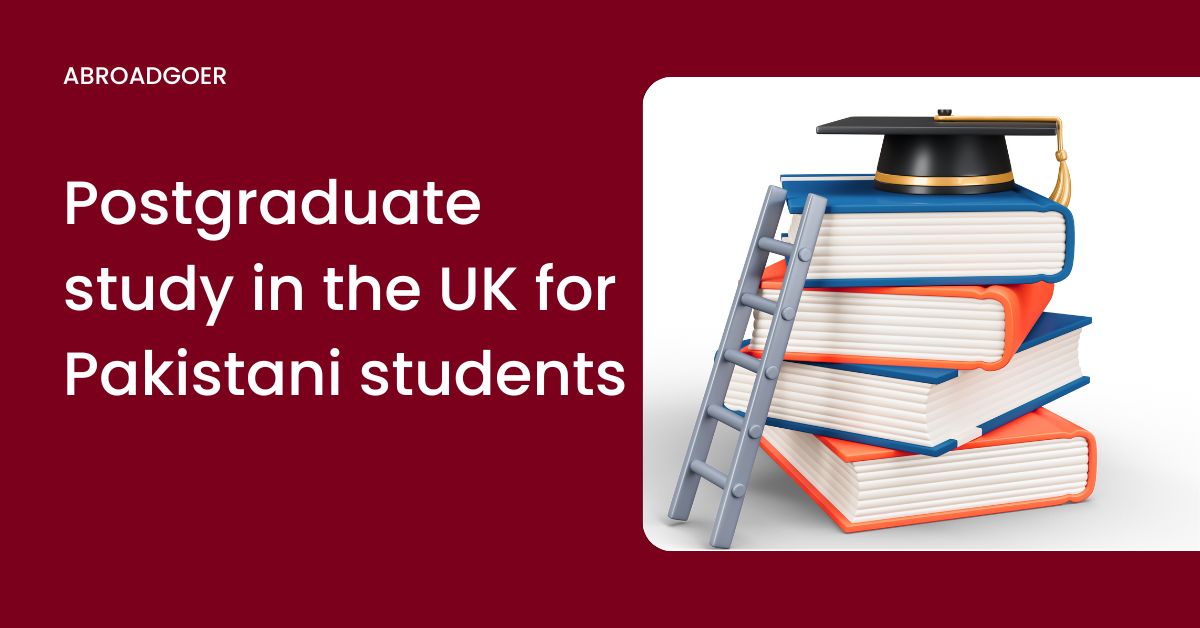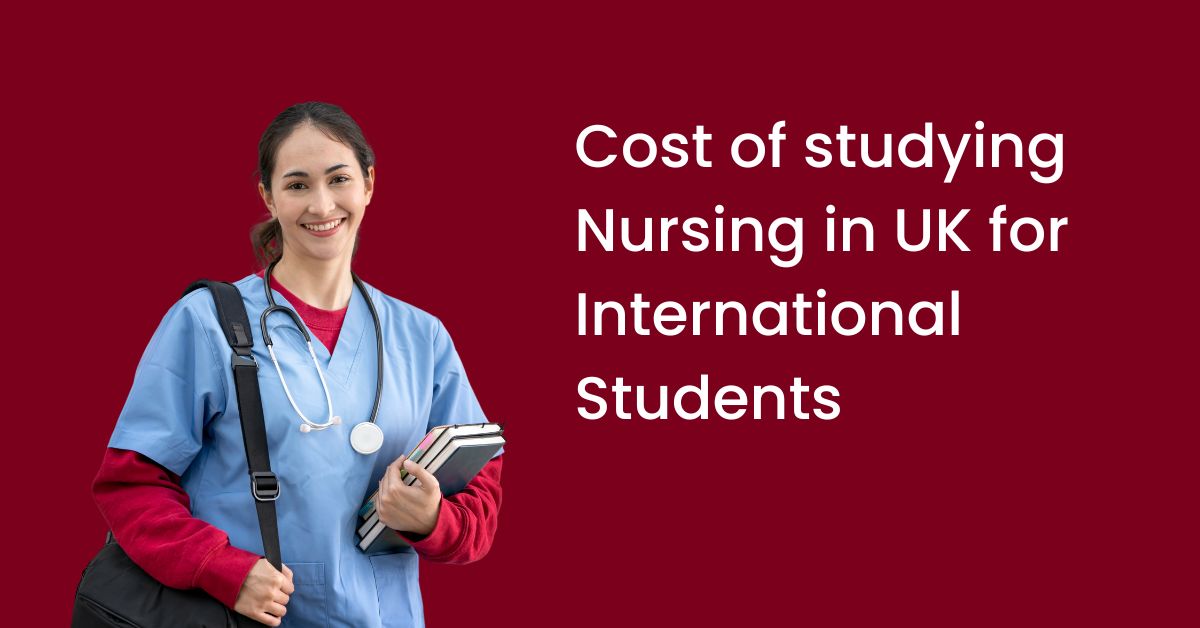MBBS in the UK for Pakistani Students
MBBS in the UK for Pakistani Students. Do you really want to be a doctor? Have you always wanted to make a difference by attending to the sick and saving lives? For scores of aspiring doctors in Pakistan, the United Kingdom beckons like a beacon of hope. The UK is not just a country rich in culture and history, but also an epicenter of global medical education, boasting some of the most respected and recognised MBBS degrees in the world.
But if we’re being honest, the idea of studying abroad, particularly in a place such as the UK can be daunting. You may be concerned about the challenging requirements for admission, the expense, or whether your degree will be valid when you return. Well, take a deep breath! This comprehensive guide is a stepping stone for clearing all of your confusion and providing you with a detailed guide to a step-by-step approach towards pursuing MBBS in UK for Pakistani students. We’ll speak in plain old everyday English so that you should be able to fully understand everything that we tell you.
Why the UK? More Than Just a Degree!
This journey does not spring up out of nowhere. Think of it as reading for a marathon: You have to understand each mile of the race. Here’s a detailed breakdown:

- Step 1: Topic of Conformity: Who Can Participate?
- Before you start dreaming about packing your bags, you must ensure you meet the minimum requirements. These are your tickets to the medical school dream.
- Academic Eligibility: If you are a Pakistani student, you need to be an excellent student to apply for scholarships. This requires you to be scoring at least 70% in your FSc (Pre-Medical) or equivalent qualifications, like A-levels. The most important subjects are Chemistry, Biology, and ideally Physics or Mathematics. This is a competitive program, so higher grades give you a greater chance!
- Language Proficiency: Since you will live and study in the U.S., you should be able to show your English language capability. You will have to take some kind of English proficiency test, like IELTS (International English Language Testing System) or TOEFL (Test of English as a Foreign Language). For MBBS, most universities require at least an overall IELTS score of 7.0 with no band less than 6.5. This means you are able to study lectures, prepare for and join in discussions, and communicate with patients effectively while on clinical placements.
- Is it possible to study MBBS in the UK without IELTS? Though most universities are particular about IELTS, you can get an alternative from some UK universities if your IELTS score is below the standard. These could include:
- Evidence you have previously studied in English: Your former education could be accepted as proof if you studied in English language throughout.
- University-specific exams: A few UK institutions have their in-house English language exams. Educational establishments such as the University of Essex, the University of Portsmouth, Birmingham City University, the University of Bristol, and Robert Gordon University have been seen to offer such alternatives. But do check specific requirements with the university of your choice.
- Entrance Exams: A big one! Whereas you might not have to take an entrance test in some other countries, the majority of UK medical schools will require you to take a special aptitude test. The two main ones are:
- UCAT (University Clinical Aptitude Test): This is a multiple-choice computer-based which measures your cognitive abilities, critical thinking, problem-solving skills, and situational judgment. Many universities use UCAT.
- BMAT (BioMedical Admissions Test): This test is mandatory for a number of the most selective universities, such as the University of Oxford and the University of Cambridge. Here’s how it tests your scientific abilities, problem-solving, and writing.
- Other considerations: Schools also seek more than numbers. They are looking for your passion and dedication to medicine.
- Relevant healthcare experience: This is so critical. Try to find opportunities to volunteer in hospitals, clinics, and even nursing homes. Even a couple of days shadowing a doctor or volunteering with them can make you far more compelling as an applicant. It demonstrates that you know what you’re getting into and take it seriously.
- Personal qualities: They want students who are compassionate, resilient, good communicators, and strong people with ethical values.
- Step 2: Stocking Your Arsenal: What you will need to file
- Once you’re confident you are eligible, the second step is to organize all of your documents. It’s similar to getting ready your medical package, every single item is a must! Here’s a list of documentation you’ll usually be required to provide: Your 10th and 12th grade certificates (FSc or A-levels) and transcripts. If these aren’t available already, have them officially translated into English.
- Valid Passport: Ensure your passport is valid and will have at least 6 months’ validity upon your return. This is important for your UK Student Visa from Pakistan.
- Scores of English Language Proficiency: Official score report of either IELTS or TOEFL test.cleanup.textapeuticentric.
- A Strong Statement of Purpose (SOP): This is your opportunity to explain to the university why you want to study medicine, why you want to study in the UK, and why you are the perfect fit for the program. It’s for you to shine (about), your little story.
- Letter of Recommendations (LOR): Obtain good, strong LORs from science teachers or a school principal who knows you very well and can write about your potential and academic abilities as well as character.
- Admission Test Scores: Your published UCAT/BMAT score.
- Evidence of Sufficient Funds: This is a very crucial point for your visa. You will need evidence to show that you have sufficient funds to pay your tuition fees and living costs for at least the first year of your course. We’ll talk more about costs soon, but in general, you will be asked to provide a bank statement.
- Medical Certificate of Fitness: This may be required for some of the universities, as well as the visa process may require a medical certificate, which might include a TB (Tuberculosis)Test for a UK Student Visa.
You know, you can keep a set (originals and their photocopies) of records and work towards getting things in one place.
MBBS in the UK for Pakistani Students: Fee Structure
The truth is that an MBBS in the UK is not cheap. It is not cheap like other places, but the quality of education and the opportunities for future jobs help to rationalize the cost. This helps you plan intelligently as you will know what to expect. Here are some ballpark costs (these are assumed to be annual costs and will vary):
| Expense Category | Estimated Annual Cost (GBP) | Approx. Fees in PKR (as of May 2025) |
| Annual Tuition Fees | £38,000 – £58,000 | 13,000,000 – 20,000,000 PKR |
| Accommodation | £8,000 – £12,000 | 2,800,000 – 4,200,000 PKR |
| Living Expenses (Food, Transport, Personal) | £9,000 – £11,000 | 3,100,000 – 3,800,000 PKR |
| Miscellaneous Expenses (Books, leisure, etc.) | £1,000 – £2,000 | 350,000 – 700,000 PKR |
| Total Estimated Annual Cost | £56,000 – £83,000 | 19,250,000 – 28,700,000 PKR |
Exchange Rate Disclaimer: The PKR estimated amount is based on the latest exchange rates (May 2025). Exchange rates do change, so double-check the latest rates.
- University-Specific Fees: Tuition fees differ drastically from university to university. For example:
- University of Oxford: Approximately £39,000 – £44,000
- University of Cambridge: £58,000 possible
- Imperial College London: Approximately £45,300
- University College London (UCL): About £47,000
- King’s College London: Approximately £43,500
- University of Edinburgh: Approximately £32,100
These percentages highlight the need to investigate the additional fees that all universities charge.
Valid Bank Statement for UK Student Visa from Pakistan: You will need to demonstrate on your visa day that you are able to pay your outstanding course fees for the first year and your living costs. As for 2025, living costs would mean demonstrating you have enough:
- £1,334 a month for courses in London (approximately £12,006 for 9 months).
- £1,023 a month for courses outside London (£9,207 for 9 months).
This should be in your bank account or your parents/guardians with a consent letter for 28 days continuously before you apply for your visa.
MBBS Scholarships for Pakistani Students in the UK
High cost need not be a deterrent! There are also many scholarships for Pakistani students that you can apply for to take some of the financial burden off your shoulders. Many of these scholarships are very competitive, so you need strong grades and a compelling application. Here are a few of the best college scholarships you can apply for.
- Chevening Scholarships: The Chevening Scholarships are fully funded, including travel costs, tuition fees, and a monthly stipend. They are very elite and only want people with potential for leadership.
- Commonwealth Scholarships: For applicants from low and middle-income Commonwealth countries, such as Pakistan. These may partially or fully fund the student.
- Rhodes Scholarships: One of the oldest and most esteemed fellowships in the world, it provides for all university and living expenses for outstanding students at the University of Oxford.
- Gates Cambridge Scholarship: Another fully funded scholarship for postgraduate study at the University of Cambridge, including tuition, living expenses, and travel costs.
- University-specific Scholarships: A lot of universities in the UK provide their own scholarships for overseas students that are either academic merit-based or purely based on financial need. Examples include:
- Hull York Medical School International Scholarship (includes a grant and fee reduction).
- Imperial College Faculty of Medicine Scholarship (provides bursaries to those who achieve high scores).
Make sure you pay attention to the application deadline for these scholarships because they are often far earlier than the deadlines for university applications.
How to Apply for MBBS in the UK
Speaking in perspective of both perspectives, applying to MBBS in the UK is mostly via a centralised system known as UCAS – Universities and Colleges Admissions Service. Think of it as a single window through which you apply to several universities. Here’s a step-by-step guide:

- Research Medical Universities: First, research which are the best and top medical universities in the UK, which provide an MBBS programme. Check out their rankings, entry requirements, course structure, and location. A few of the most highly popular courses among Pakistani students are:
- University of Oxford
- University of Cambridge
- Imperial College London
- University College London
- King’s College London
- University of Edinburgh
- University of Manchester
- University of Glasgow
- University of Birmingham
- Queen Mary, University of London
- University of Bristol
- University of Leicester
- University of Sheffield
Each university has its own character, so pick the right one!
- Apply to UCAS: Make an account on the UCAS website. This is where you will maintain your entire application. Through UCAS, you can apply for up to five courses, although for medicine, the majority of students make applications to five different medical schools.
- Prepare for Entrance Exams: I’ll say it again – sit your UCAT or BMAT as early as possible. These points are make or break, so don’t fuck up your prep for them.
- Prepare documents: Ensure that all your documents –Transcripts, English test scores, SOP, LORs, Passport copy, etc, are ready and formatted the way they should be.
- Craft a Strong Personal Statement: Your statement is your voice in the application. This is where you persuade the admissions committee that you really love medicine. Tell us why you are motivated to pursue a career in medicine and share what you have learned in your experiences (volunteering, working in health care, shadowing, etc.”). Mention your own skills — in collaboration, communication, resilience — and how they are a good match for a challenging medical career.
- Apply: Fill in the UCAS form correctly, attach all the necessary documents, and send it before the deadline (normally mid-October for Medicine -always verify the exact UCAS deadline for each particular year).
- Get Ready for Interviews: If your application is accepted, there’s a good chance you will be asked to interview. These interviews are a key factor during the admission process in medical schools. They frequently employ a format known as Multiple Mini Interviews (MMI), in which you cycle through a series of stations, each designed to test a different skill or scenario. Prepare to be asked questions regarding medical ethics, why you want to study medicine, and problem-solving situations. Mock interviews can be very useful!
- You have an offer: If you are, you’ll have an offer through UCAS. It may be a conditional offer (ie, you have to get some grades in your ABC/123 exams to meet the conditions and take up the place), or it may be an unconditional offer.
The UK Student Visa from Pakistan
The UK Student Visa from Pakistan. Get Yours Now! Upon receiving that all-important unconditional offer letter, the next big thing on the list is to apply for your UK Student Visa (Tier 4 General Student Visa). This is your visa that allows you to live and study in the UK. Here’s what you’ll need to do, and the documents you’ll need:
Get a Confirmation of Acceptance for Studies (CAS): Your university will provide you with a CAS Letter for the UK. This is a one-off electronic reference number that acknowledges your unconditional offer and includes valuable course and institution information. Your visa application depends on it.
Financial Obligations: Obviously, you will have to prove that you have the funds to pay your tuition fees for the first year and also for the living costs. So a bank statement that fits the requirement (amount, age in account, etc.). If you have a sponsor/parent who is your sponsor parent, then you must show their bank statement, a consent letter, and proof that you are of a relationship (for example, a birth certificate, or a family registration certificate – FRC).
- Required Documents for Visa:
- Valid international passport.
- Your CAS reference number and appropriate documents.
- Evidence of money (bank statements, sponsor letters).
- Evidence of English language proficiency (IELTS/TOEFL results).
- TB Test result from an authorized clinic in Pakistan.
- The documents of your academic qualification.
- Passport-sized photographs.
- Visa application fee (about £490 as of 2025, but confirm today’s rates).
- Proof of payment for Immigration Health Surcharge (this is paid online). This charge (approximately £776 a year as of 2025) enables you to use the NHS while you are in the UK.
- Apply Online: Complete the application form for a Tier 4 (General) student visa online.
- Make a Biometrics Appointment: Once your appointment is booked, you’ll need to attend a biometric appointment, which includes fingerprinting and a photo, at a Visa Application Centre (VAC) in Pakistan.
- Pass an Interview (if Needed): You may be required to attend a credibility interview by the UK Visas and Immigration (UKVI). You may be asked about your reasons for studying in the UK, the course you are taking, and what you plan to do after you finish.
- Wait for A Decision: Processing times can be unpredictable, apply well before your planned trip.
- Pick up your BRP: When your visa is approved and you’ve arrived in the UK, you must collect your BRP within 10 days of arrival. It just so happens to be the official ID card of the UK
Life as a Medical Student in the UK
Life in the MBBS UK is something different.
- Accommodation: Most universities have student accommodation (dorms/halls of residence) , which is a good way of meeting people. Or you can rent privately.
- Cost of Living: London is pricey, but cities elsewhere in the UK are generally cheaper. You’ll also have to account for food, transportation, books, and social activities. Most students figure out ways to be smart about money, taking precautions to anchor themselves against the random monetary pillages of space pirates.
- Work during study: As an international student with a Tier 4 visa, you’re usually permitted to work part-time during term time (often up to 20 hours a week) and full-time when on vacation. But MBBS is a very tough course, and managing work with studies can be extremely difficult.
- Academics: As is the case every year, academics should be your priority.
- Culture and Diversity: The UK is quite a multi-cultural place, and you will meet people from all over the world. This sort of experience helps expand one’s knowledge and understanding.
- Weather: up to the British! It can be rainy and nippy, even in summer. Pack accordingly.
Your Future After MBBS in the UK: Career Opportunities
The ride doesn’t stop after commencement! Once you finish your MBBS in the UK, you get amazing career options open.
- Foundation Programme: The majority of UK and international graduates need to complete a two-year Foundation Programme (F1 and F2). This provides supervised training in many medical and surgical specialties and is an important “bridge” between medical school and specialist training.
- Specialty training: You can apply for training in specific areas of medicine once you have completed the Foundation Programme. And here, you actually become an expert in surgery, pediatrics, cardiology, psychiatry, or as a general practitioner (GP). Doctor/hospital. It typically takes 4-7 years of specialty training, depending on the specialty.
- Working in the UK: after graduation, you will be able to remain and work in the UK for two years with the Graduate Route visa, enabling you to get real experience working in the NHS or private healthcare.
- GMC Registration: You will be required to register with the General Medical Council (GMC) to work as a doctor in the UK. This is likely to include showing evidence of your primary medical qualification, passing the UK Medical Licensing Assessment (UKMLA), and proving you can communicate in English.
- Working in Pakistan: Your MBBS from a UK medical school is universally accepted and recognized by the Pakistan Medical Commission. Competition
- Reward Become a Doctor in Pakistan: To practice in Pakistan, you are required to qualify NLE (National Licensing Examination). Unfortunately, this is to make certain that all doctors practicing in Pakistan are meeting the national standards, irrespective of whether they have studied here or elsewhere.
The Cheapest MBBS in the UK for Pakistani Students
While the UK is home to world-class medical education, it is logical to want cheaper options. You should bear in mind that the cheapest in the UK for MBBS is quite relative; it will be a big investment when set against some other countries. Some universities have an average tuition cost below that level, and some offer bigger scholarships. Among the ones sometimes mentioned for lower fees (although these are still very high) are:
- University of Aberdeen
- University of Glasgow
- University of Dundee
- Queen’s University Belfast
- University of Leicester
- University of Southampton
Make sure you check the MBBS fees in the UK for international students directly on university websites, they may have been updated. Plus, don’t forget, the overall cost is not just about tuition — living expenses matter a lot and can vary a good deal by city. For example, studying in London will nearly always be costlier than studying in a city such as Glasgow or Leicester.
Comparing Your Options: MBBS in Malta for Pakistani Students and MBBS in Australia for Pakistani Students
Though the UK is a popular option, it’s wise to consider other popular MBBS destinations to know all your choices better. Malta and Australia are among the two other countries Pakistani students may opt for.
MBBS from Malta for Pakistani Students
Malta, a stunning island country in the Mediterranean, is increasingly becoming the choice to study medicine.
- Duration of MBBS in Malta: The MBBS course in Malta, like the UK, is generally of 5-6 years.
- Cost and Expenses: Typically, the Malta MBBS fees can vary from €6,000 – €35,000/year, based on the university (University of Malta or Queen Mary University of London, Malta Campus). This can, occasionally, be cheaper than the UK.
- Requirements: You’ll need a strong academic record (FSc or A-levels with Biology, Chemistry, Physics), English language proficiency (IELTS is generally required, though some universities grant waivers) , and a student visa.
- Recognition: Accreditations in Malta are frequently valid throughout Europe, opening the door to other EU nations.
MBBS in Australia for Pakistani Students
Australia is a nation of character that offers a vast, vibrant, and fascinating range of life and a great nation of opportunities. Australia provides a great living standard and medical education at a quality that is second to none, though not without a price.
- Course Lengths: It is generally in the range of 5 to 7 years for Australian MBBS courses. Some universities offer an undergraduate MBBS, while others offer an MD as a graduate entry programme following the provision of a bachelor’s degree.
- Tuition Fee: The MBBS fees in Australia are quite high; it is typically between AUD 50,000 and AUD 90,000 annually for international students.
- Qualifications: A good academic record (At least FSc/A-levels with good marks in science, English test (IELTS minimum 7.0 and sometimes higher, must pass an entrance exam (like UCAT or UMAT (Undergraduate Medicine and Health Sciences Admission Test)). Graduate-entry MD courses may require GAMSAT or MCAT.
- Scholarships: Scholarships do exist, e.g., Australia Awards Scholarships are often highly competitive.
- Post-Graduation: Graduates must pass the AMC exam in order to register and practice in Australia.
Both Malta and Australia are great when it comes to medical education; however, the UK is often favoured for its long-standing, world-renowned MBBS degree programmes, greater clinical exposure via the NHS, and better post-study work opportunities for international students to reside and work in the country.
How Much Percentage is Required for MBBS in Pakistan vs. the UK?
Comparing what it takes to study medicine in your home country vs. abroad is only natural. An MBBS in Pakistan usually follows the steps: Good performance in FSc (Pre-Medical) or equivalent with at least 60% aggregate marks in the following subjects: Biology, Chemistry, Physics/Mathematics in accordance with the regulations of the Pakistan Medical and Dental Council (PM&DC).
Clear the very competitive entry test (MDCAT) conducted by the University of Health Sciences to achieve admission to a medical or dental college. The MDCAT is held once a year by the PMC or relevant provincial universities. Your MDCAT score matters a lot when it comes to getting admission in a public or private medical college in Pakistan. MBBS in UK for Pakistani Students, on the other hand, demands, though a high FSc or A-level percentage (ranging from 70 %+ in case of FSc to good A-Level grades, for e.g., AAA, or equivalent, the emphasis is also on:
- UCAT or BMAT scores (which are not knowledge tests but aptitude tests).
- If you’re not a native English speaker, you’ll need to be fluent in English (IELTS 7.0+).
- Strong letters of recommendation and a powerful personal statement.
- Relevant healthcare experience, work experience through part-time employment, internships, volunteer activities in healthcare, etc.
Performance in interviews. So, although both routes require academic prowess, the UK admission system considers much more than a set of test scores, the focus of which shifts from grade percentages to how well-suited you are for the rigorous life of a medical student.







